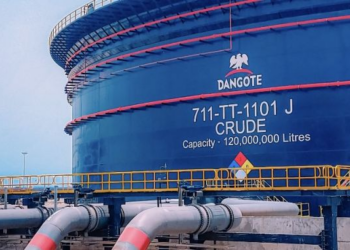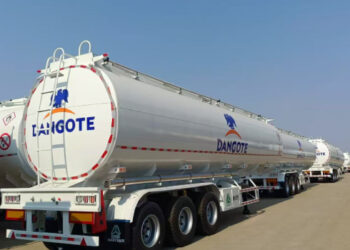The Dangote Group has suggested the inclusion of a provision that in the Petroleum Industry Bill (PIB) that only companies that have active refining license should be allowed to import petroleum products.
The company, which is on the verge of completing a 650,000-barrels-per-day refinery in Lagos, said this would encourage investment in local refining.
According to a report by Punch, this disclosure was made by the Chief Strategy Officer of Dangote Group, Aliyu Suleiman, in a presentation during a visit by members of the National Assembly’s Joint committee on PIB to the project site as he highlighted several recommendations by the company.
READ: Nigeria set to become exporter of refined crude products –IMF
What the Dangote Group top official is saying
Suleiman said, “Nigeria is exceptional in being a major oil producer with near-zero refining capacity.
“Though the Dangote Refinery will help address this, there could be periods when petroleum products may need to be imported, such as when the refinery is undergoing turnaround maintenance or if demand grows to exceed capacity.”
The company made a recommendation for a backward integration policy to be applied in the downstream petroleum sector to encourage investment in local refining.
He said, “To support this, licence to import any product shortfalls should be assigned only to companies with active refining licences. Import volume to be allocated between participants based on their respective production in the preceding quarter. Such import will be done under the DSDP scheme.’’
READ: Dangote’s multi billion-dollar refinery is 75% complete, Otedola says
The Dangote Group said that fuel imported into Nigeria are of very low quality with a harmful effect on health and also impacts the performance and durability of vehicles, especially high-performance cars.
The company suggested that to safeguard the health of Nigerians, imported petroleum products must conform to the Afri-5 specification (50 ppm sulphur) in line with the ECOWAS declaration of February 2020 on the adoption of the Afri-Fuels Roadmap.
What this means
- The implementation of this policy suggestion will go a long to improve the local refining capacity of refined petroleum products in the country and subsequently end its massive importation that is the current trend.
- This will also help conserve the scarce foreign exchange that is being expended on the importation of petroleum products in the country.
- The Dangote refinery which has faced several delays in its completion is expected to take in 2021.























